From the Local to the Global
Tuesday, November 28th from 10:00 am - 11:30 am PST / 1:00 pm - 2:30 pm EST
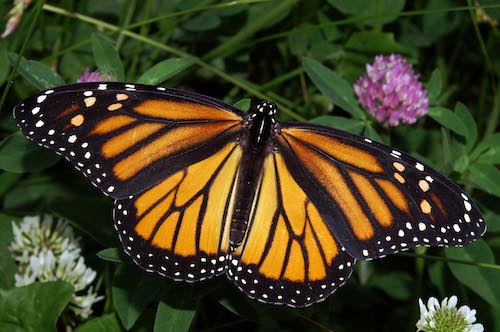 The second e-dialogue from the Biodiversity Conversations: How important are the common loon and polar bears to Canadians? series used the monarch butterfly to illuminate the local to global interdependencies of biodiversity conservation. They revealed the dynamic interconnections and the need for global governance systems essential to protecting critical habitats and migratory paths. Biodiversity, like climate change, does not respect political borders and requires a broader systems approach for its conservation.
The second e-dialogue from the Biodiversity Conversations: How important are the common loon and polar bears to Canadians? series used the monarch butterfly to illuminate the local to global interdependencies of biodiversity conservation. They revealed the dynamic interconnections and the need for global governance systems essential to protecting critical habitats and migratory paths. Biodiversity, like climate change, does not respect political borders and requires a broader systems approach for its conservation.
Click here to read conversation
Want to learn more about biodiversity? Click here to visit our curated resource library.
Moderator
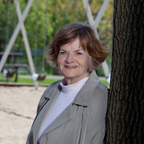 |
Professor Ann Dale, Moderator, held a Canada Research Chair in Sustainable Community Development (2004-2014) at Royal Roads University, School of Environment and Sustainability. A former Trudeau Fellow Alumna (2004), she is a Fellow of the World Academy of Arts and Science, chairs the Canadian Consortium for Sustainable Development Research (CCSDR), a Board Member of the World Fisheries Trust and the founder of the National Environmental Treasure (the NET). Current research interests include governance, social capital and agency, biodiversity conservation, place-based and virtual sustainable communities. She is a recipient of the 2001 Policy Research Initiative Award for Outstanding Contribution to Public Policy for her book, At the edge: sustainable development in the 21st century. Professor Dale is actively experimenting with research |
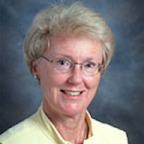 |
Dr. Valerie Behan-Pelletier is an Honorary Research Associate in the Invertebrate Biodiversity Program at Agriculture and Agri-Food Canada in Ottawa. She is an expert on soil mites in ecosystems globally, and has a broad research interest in biodiversity and ecology of arthropods in soil and canopy habitats. She is currently engaged in research initiatives on soil mites across North America and in New Zealand. She is an Editor of the Global Soil Biodiversity Atlas, a Project of the European Commission and the Global Soil Biodiversity Initiative, scheduled to be released in Fall 2015. She is past member of the UNEP Scientific Committee on Problems of the Environment (SCOPE) Soil and Sediment Subcommittee. Valerie has been a recipient of Japanese Society for the Promotion of Science Fellowship, is a past member of NSERC’s GSC on Evolution and Ecology, and the Scientific Committee of the Biological Survey of Canada. She is a graduate of University College Dublin, Ireland and McGill University, Montreal. She brings her passion for and knowledge of biodiversity to the Women for Nature Initiative |
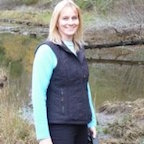 |
Holly Clermont is an experienced conservation biologist and nascent social scientist (MA, BSc, Dipl. Renewable Resource Mgmt) with interests in natural resource and health/safety science and practice. Based in Nanoose Bay, British Columbia, her mid-life foray into social science doctoral research was motivated by everyday challenges faced by natural science practitioners to slow and reverse trends of widespread biodiversity loss. Despite endless promotion of sustainabilty principles, 'upholding the public interest through science-based stewardship of ecological resources' (the biologist’s credo) is routinely part of a zero-sum game of environment versus economy. Holly's doctoral research, 'The Underbelly of Economy versus Environment Conflicts: Detangling Sources of Tension in Contentious Natural Resource Decisions' confronted this challenge, looking at two cases of potential energy development in coastal B.C. (oil pipeline expansion and run of river hydro generation). With this work, Holly hopes to help achieve more positive outcomes for sensitive ecosystems and for sustainable resource development. |
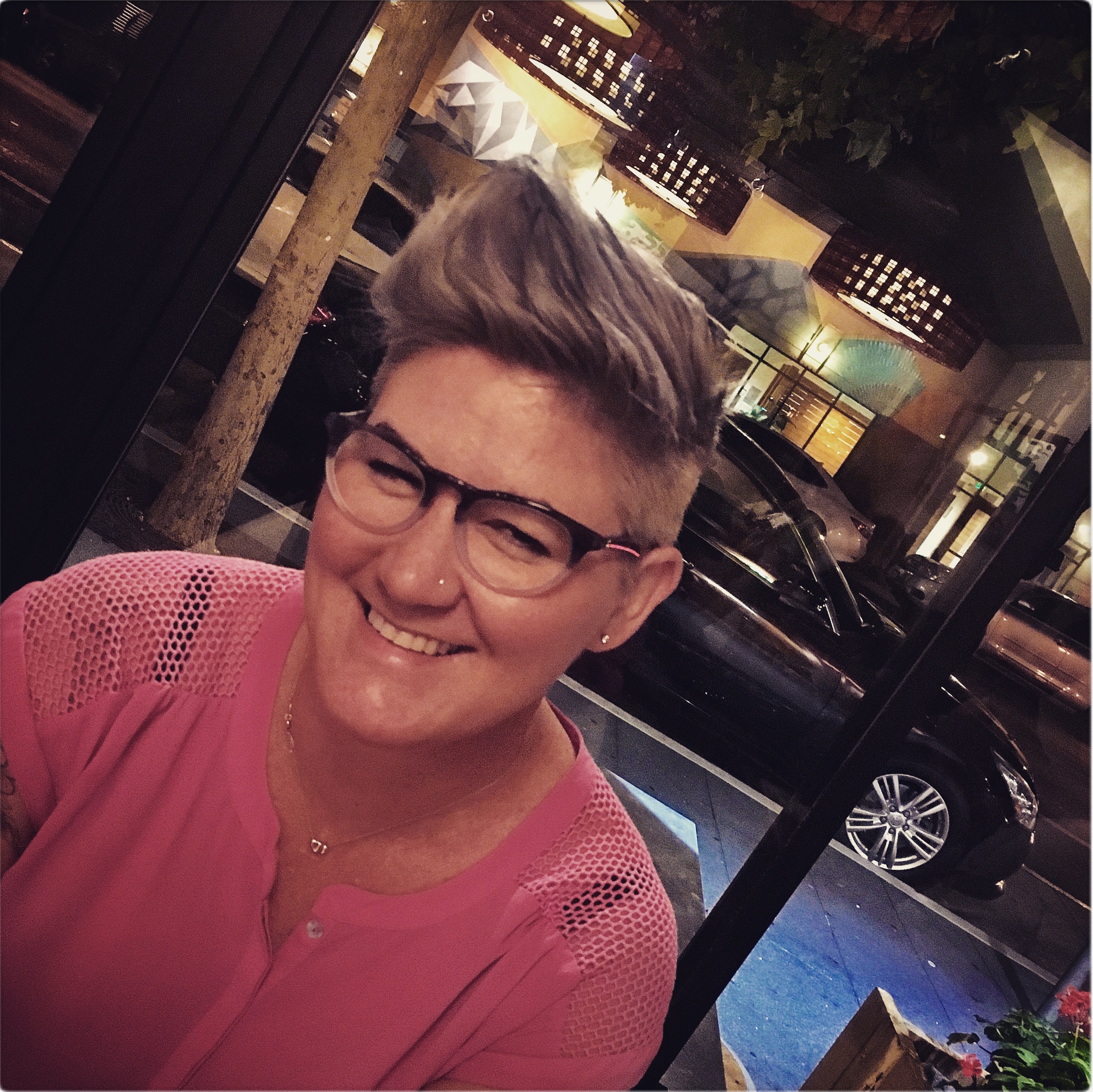 |
Michelle Corsi has been working in the field of environmental sciences and conservation for the last decade. Although she may have started in contaminated sites remediation and environmental impact assessments, she quickly realized that conservation was where her heart lay. When life offered her an opportunity to move over seas, her degree in environmental sciences and sustainability brought her to the Singapore Environment Council as lead scientist on developing a green labelling program for the country. While still in Singapore, a dream position at World Wildlife Fund presented itself where she worked with a team developing and initiating a Sustainable Seafood program for WWF Singapore. Today, she can be found working with the Veterinary Science Department at The Marine Mammal Center in Sausalito California, the worlds leading marine mammal rescue, rehabilitation and research facility. While her role primarily is keeping the team organized she is working on research projects relating to ocean trash and marine mammal entanglements, as well as being involved in all aspects of the vet sci department from animal care, to volunteer training, health and safety, as well as leading the sustainability team for the Center. In her spare time she is in the final stages of her MSc. in Environment and Management at RRU with a thesis on prevalence of sea lion stranding related to changes in sea surface temperatures. |
 |
Sharolyn Mathieu Vettese is a long time environmentalist, gardener and hiker who has always cared deeply about nature. The Toronto based mother of three became increasing concerned about climate change, so she decided to take matters into her own hands. Along with her father and business partner, she invented something extraordinary. Today their company, Wind Simplicity manufactures and installs bird and bat friendly small wind turbines. Sharolyn's company aims to put nature first. "We make working with nature a simple solution and use green principles in all aspects of our work", she says. As a founding member of Nature Canada's Women for Nature, Sharolyn's generosity is making a tremendous impact. Check out Sharolyn’s blog about her journey to the monarch butterfly biosphere |
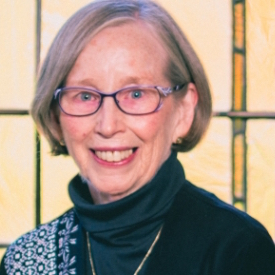 |
Dr. Leslie King is program head of the Master of Arts and Master of Science in Environmental Practice programs and the Bachelor of Arts and Bachelor of Science in Environmental Practice programs at Royal Roads University. She directs the Canadian Centre for Environmental Education in partnership with ECO Canada. Her research in Africa and the Arctic spans the topics of protected areas, poverty reduction, sustainable healthy communities, arctic sustainability indicators, aboriginal resource management, traditional ecological knowledge, and environmental governance. She has served on the Boards of many environmental, and community organizations as well as previously serving as Vice President, Academic at Vancouver Island University, Founding Dean of the Clayton H. Riddell Faculty of Environment, Earth and Resources at the University of Manitoba and the Founding Chair of the Environmental Program at the University of Northern British Columbia. We commend Dr. King for her decades of teaching, training and mentoring scientists so they too can make positive contributions to protecting our natural world, as she has done over her illustrious career. |
 |
Laren Stadelman is a Toronto based management consultant and who focuses specifically on not for profit and public sector clients. With over 25 years of experience, Laren’s areas of expertise include strategic planning, board governance and executive coaching. She holds an MBA from York University and is a Certified Management Consulting Fellow (FCMC). Learn more about Laren’s passion for monarch butterflies in this Nature Canada interview conducted by Sharolyn |


